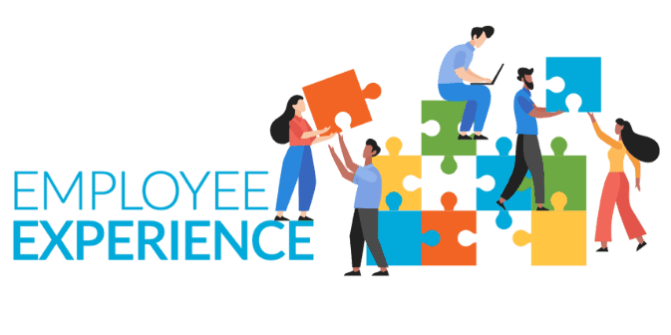The Great Resignation has been a significant topic of attention for HR professionals during the past year. Employee retention still remains a top priority, regardless of differing views on whether or not the mass exodus of workers is over.
As HR experts, we are fully aware of all the factors that make employees your company’s most precious asset. Simply said, replacing someone is expensive. Over $4,000 is spent on each hire on average across all businesses and industries.
Employee retention and experience were even more under the limelight as a result of the pandemic’s effects. In a 2021 Willis Towers Watson worldwide study, 92 percent of companies said that during the next three years, improving the employee experience will be a top priority. Prior to the pandemic, just 52% of respondents said that employee experience was important. These comparisons help put the importance of retention into perspective. It is obvious that any company that wants to remain in business needs to have a strong retention strategy.
Growth is the key
Calculating the percentage of employees who stick with a company for a predetermined amount of time is an easy way to quantify employee retention. On the other hand, meaningful retention is harder to quantify. Although measuring factors like engagement, pleasure, and purpose might be challenging, keeping these objectives in mind is exactly what will advance your retention plan.
Retention that is meaningful goes beyond simply keeping staff members on board indefinitely. It entails keeping the right individuals for the correct length of time and for the right reasons. And growth is the key to determining that. When an environment of reciprocal growth exists—where the employee and the organization are both benefiting—that is when an employee’s time with your firm becomes truly meaningful. Employee inputs should help the company advance, and the experience at the company should help the employee advance (thereby giving their life greater meaning and purpose). How therefore, as an employeor do you contribute to making that happen?
Three ways to find meaningful moments at work
In an environment where employees desire more than simply money, a comprehensive approach to retention and the employee experience is required. People desire, among other things, opportunities to develop their expertise, advance in their jobs, and maintain a positive work-life balance.
Companies today may deepen employee purpose and spark better performance by giving their staff members meaningful experiences. Here are a few strategies for ensuring that your staff members feel appreciated and that their efforts to the company have worth.
- Flexibility
Businesses that prioritize flexibility when designing the employee experience foster an environment that is conducive to innovation. And it helps workers identify with their purpose when they feel free to experiment, express fresh ideas, and think that their voices will be heard.
Companies almost have no choice but to offer flexible experiences when 94% of millennials and Gen Z can envision themselves leaving their present industry for another. This can involve providing things like flexible work schedules, remote work possibilities, or a selection of communications technology apps to suit various interests. Allowing employees the flexibility to work when, when, and how they see fit will help them feel as though their efforts are worthwhile, particularly for younger workers.
- Direction
Imagine the mentality of an employee when they feel like they are involved in a career versus when they feel like they are doing a job. While a career entails progressive achievement, goal setting, and long-term engagement, a job may just involve performing duties.
According to a poll by Employee Benefit News, lack of career advancement ranks first among the reasons why people leave their jobs (22%), with a lack of growth prospects accounting for 21% of that. New difficulties and experiences learned along the way are what lead to growth. Moments of significance occur when a person has purpose and believes they can influence how a firm will use them in the future.
- Connection
According to a Gallup survey, employees who have positive interpersonal interactions at work experience better levels of employee engagement, which increases retention. The advantages of emotional connection with peers are difficult to quantify but clear to perceive; friendship is a priceless commodity.
This gets more challenging but still manageable if your teams are entirely or partially separated. By being deliberate with team interactions, HR may promote moments of connection. Start meetings, for instance, with a few minutes of private, unrelated catch-up time. Create a virtual water cooler channel for open, friendly conversation if there isn’t one currently. Making an effort a little bit can make a big difference in creating more fulfilling employee experiences.
Bottom Line
Before an employee even starts working for your firm, you can make their experience valuable. There are numerous ways you may find meaningful moments to add during the interview process, onboarding, and throughout the rest of their experience.
SW HR Consulting has been helping companies to build their teams and values for over 10 years. Contact us to find out more about our unique hr outsourcing services and see how our expertise can benefit you.







